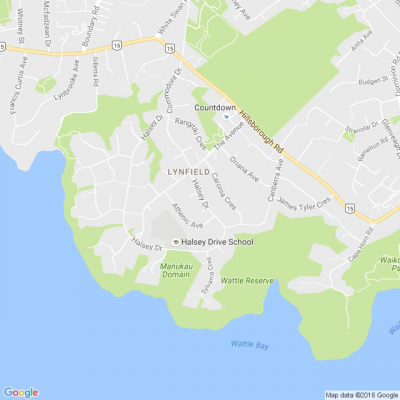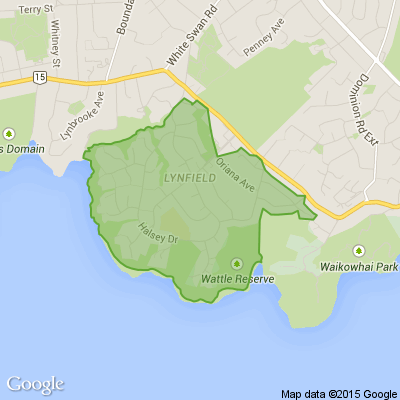Auckland Council targets savings of $120 million
Auckland Council needs to find significant savings of $120 million, and fast, as the economic impact of Covid-19 gets bigger, according to a leaked email from chief executive Stephen Town. The savings target comes as councillors meet behind closed doors tomorrow to consider the latest version of an "emergency budget" that includes proposals for an overall rates rise of 3.5 per cent alongside an alternative 2.5 per cent increase. Rising costs for waste management and lowering rates for businesses could see rates tip the scales at 4.5 per cent for households and about 2.5 per cent for businesses under the 3.5 per cent option.
In the email to more than 12,000 full-time and part-time staff at council and its five council-controlled organisations(CCOs), Town says how incredibly proud he is of how staff have come together to respond to the challenges of the pandemic. "Together we have shown Aucklanders the value we bring and the pride we take in supporting them during a crisis. From delivering food parcels to providing essential services and keeping our city running, we've really stepped up," he said.
Yesterday, Town announced in a media release staff who earn more than $100,000 will be asked to take a minimum pay cut as it tries to find savings after a dramatic cut in revenue over the past two months. The voluntary pay cuts will only impact staff earning six figures and will be a tiered approach with the higher earners being asked to take a bigger cut.
=======================================================
There will be a 5 per cent reduction for anyone earning between $100,000 and $175,000, a 7.5 per cent reduction for anyone earning between $175,001 and $275,000 and a 10 per cent reduction for anyone earning above $275,001 for six months. The 2019 annual report shows 2831 council and CCO staff earned more than $100,000 - a jump of 358 staff from 2473 the previous year. Town also announced a comprehensive operating review with a view to begin implementing changes by August 1. "All of this means that the entire council group has to make some difficult decisions to find significant savings over the next year and close the financial gap that has been created. Our share of the savings is $120 million.
========================================================
"Even if we return to 'normal' tomorrow, the damage to the economy is considerable, and this will continue to have a profound effect on our income (rates and non-rates revenue) for several years to come," said Town. He said reducing costs wherever possible - council has protected and paid all staff their full salaries during lockdown - have made a contribution but nowhere near the level of savings required. Town said three difficult actions are under way, including voluntary pay cuts for staff earning more than $100,000, discussions with the PSA about this year's remuneration review and a review of the council's operating model. "It is expected that this review will result in a reduction in permanent employees," said Town, noting staff are the largest cost for the council. He said the size of the challenge means there is not a single solution and a range of solutions are needed. "But I need you to be aware that we have to implement some changes by August 1, 2020 so that savings from these changes have a material impact for our next financial year. "I know this will create uncertainty for you at a time which is already difficult - we are all trying to make sense of this new world we're in and what it means for us and our households," he said.
=========================================================
Poll: Should the government levy industries that contribute to financial hardship?
As reported in the Post, there’s a $30 million funding gap in financial mentoring. This has led to services closing and mentors stepping in unpaid just to keep helping people in need 🪙💰🪙
One proposed solution? Small levies on industries that profit from financial hardship — like banks, casinos, and similar companies.
So we want to hear what you think:
Should the government ask these industries to contribute?

-
58.9% Yes, supporting people is important!
-
26.1% No, individuals should take responsibility
-
15% ... It is complicated
Even Australians get it - so why not Kiwis???
“Ten years ago, if a heatwave as intense as last week’s record-breaker had hit the east coast, Australia’s power supply may well have buckled. But this time, the system largely operated as we needed, despite some outages.
On Australia’s main grid last quarter, renewables and energy storage contributed more than 50% of supplied electricity for the first time, while wholesale power prices were more than 40% lower than a year earlier.
[…] shifting demand from gas and coal for power and petrol for cars is likely to deliver significantly lower energy bills for households.
Last quarter, wind generation was up almost 30%, grid solar 15% and grid-scale batteries almost tripled their output. Gas generation fell 27% to its lowest level for a quarter century, while coal fell 4.6% to its lowest quarterly level ever.
Gas has long been the most expensive way to produce power. Gas peaking plants tend to fire up only when supply struggles to meet demand and power prices soar. Less demand for gas has flowed through to lower wholesale prices.”
Full article: www.theguardian.com...
If even Australians see the benefit of solar - then why is NZ actively boycotting solar uptake? The increased line rental for electricity was done to make solar less competitive and prevent cost per kWh to rise even more than it did - and electricity costs are expected to rise even more. Especially as National favours gas - which is the most expensive form of generating electricity. Which in turn will accelerate Climate Change, as if New Zealand didn’t have enough problems with droughts, floods, slips, etc. already.
A Neighbourly Riddle! Don’t Overthink It… Or Do?😜
Do you think you know the answer? Simply 'Like' this post if you know the answer and the big reveal will be posted in the comments at 2pm on the day!
If you multiply this number by any other number, the answer will always be the same. What number is this?








 Loading…
Loading…